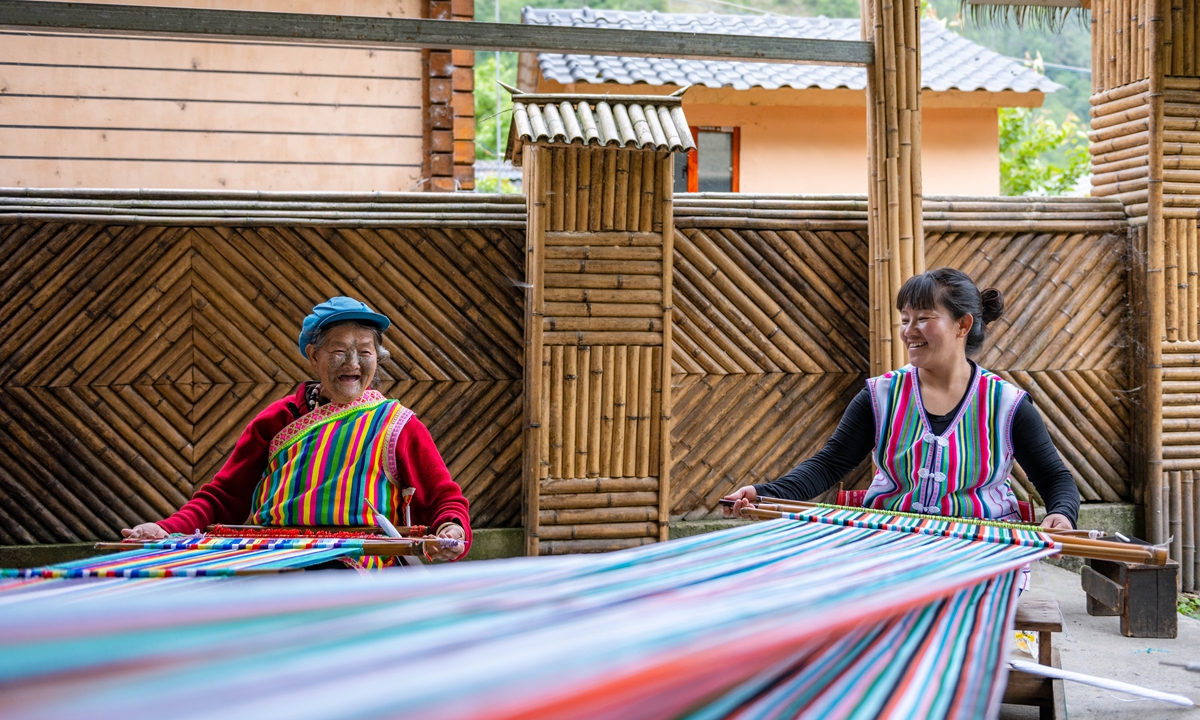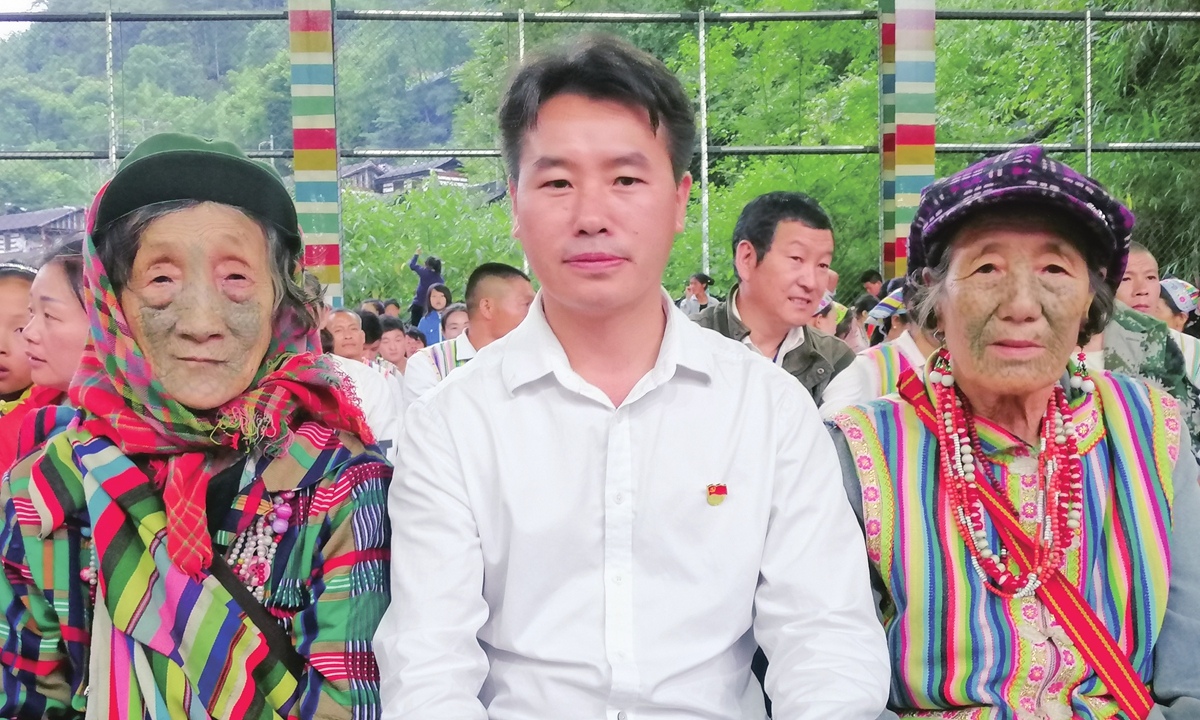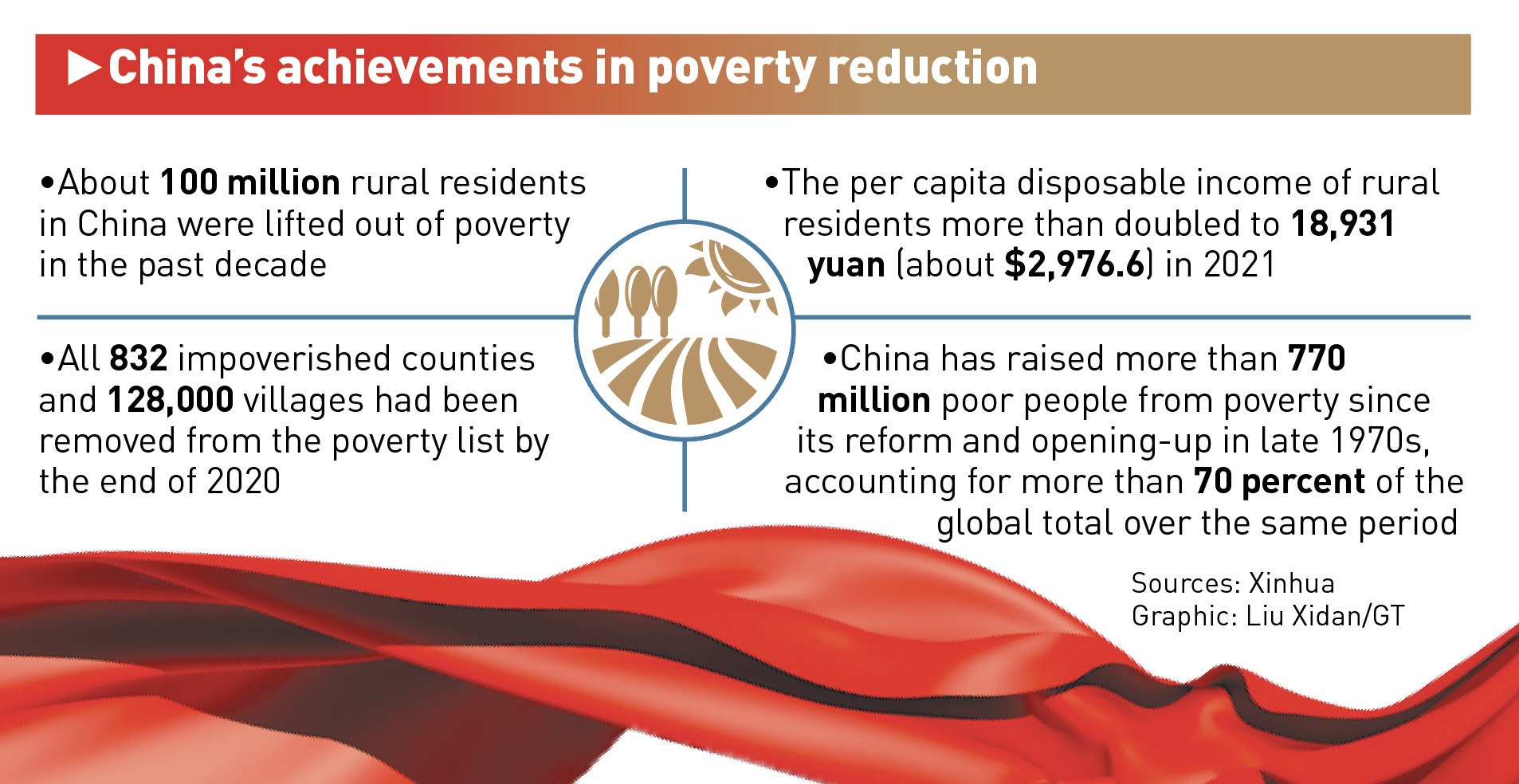Editor's Note:Who is the Communist Party of China (CPC)? What is the CPC's role in the new era?
The CPC has grown into one of the largest parties in the world in the process of leading the Chinese people to seek liberation and happiness, making China as strong and prosperous as it is today.
As the CPC ushers the nation into a new era of development, the past decade has witnessed great achievements in national strength and prosperity, with people's confidence and recognition of this path rising to unprecedentedly high levels.
With more than 96 million members, the CPC will convene its 20th National Congress in the second half of the year, which is expected to guide the country's development and policymaking. Ahead of the meeting, the Global Times is publishing a series of stories to help the world understand the CPC in the new era, through the stories of CPC members working on the frontlines of various fields, as well as through observations made by respected scholars.
In this story, a grass-roots official from the remote mountains in southwestern China shares his story of how the Dulong people were able to shake off poverty and live a modern, good life under the leadership of the CPC.

The view of Kongdang village, Dulongjiang county of Nujiang Lisu Autonomous Prefecture in Southwest China's Yunnan Province Photo: Xinhua
"The Dulong ethnic group has been lifted out of poverty!"
At the end of 2018, the thrilling news spread across China via various media reports. It was not only a historic milestone for the isolated ethnic group of the Dulong, but also a reflection of the outcome of China's poverty eradication work under the leadership of the CPC.
The Dulong people, who had been mysterious to many along with their ancient face-tattoo custom, are one of the ethnic minorities that directly transitioned from an antiquated society to a socialist society in the early days of the founding of the New China in 1949.
Located in Southwest China's Yunnan Province bordering Myanmar, Dulongjiang township is the Dulong ethnic minority's ancestral home. It is a group that had long endured extreme poverty and was isolated from the outside world.
Since the start of the poverty alleviation battle, thanks to the firm leadership of the CPC, with the unremitting efforts of the Dulong cadres and masses, the Dulong people have shaken off poverty as a whole.
Only those who have experienced the whole process would understand the true hardship and value of this victory of Dulong people.
Kong Yucai is one of them. "People here have benefited from improved infrastructure and connectivity to eliminate poverty," Kong, now head of Dulongjiang township of Gongshan county in Yunnan's Nujiang Lisu Autonomous Prefecture, told the Global Times.
A 'miracle' for the DulongKong, now 42 and a locally born and bred Dulong man, has witnessed the changes in his hometown through his time growing up and working as a local civil servant, especially the stunning achievements in the past decade.
The Dulong people had long endured extreme poverty in history. They live in the mountainous areas nestled along the deep undeveloped forests that isolated them from the outside world.
This geographic remoteness has inadvertently made the area one of the least developed parts of China, as transportation would routinely be cut off for at least half a year from November to May due to heavy snowfall in the mountains, as Kong explained.
The Chinese know too well that development holds the master key to all problems. As the Chinese saying goes, building the road is the first step to become prosperous. For Dulong township and people in most of the impoverished areas in China, rural highways are the key to communicating with a modern world.
"However, this wasn't easy," Kong said.
With the launch of the poverty alleviation program in the village, the weakest link was determined to be poor transportation. "While relocating and resettling impoverished households along the Dulong river, transportation in the rugged mountains has been the biggest obstacle," Kong Said.
Moreover, the region would face seasonal water shortages, which would cause electricity outages, along with bad satellite signals, leading to slow construction progress. Construction workers would routinely quit their job because of such poor conditions.

Dulong women are weaving. Photo: VCG
Under such a difficult situation, in 2014, the first highway tunnel linking Dulongjiang township and Gongshan county was finally completed, which enabled the villagers to get timely healthcare services, education opportunities, and more conveniences.
The road became a lifeline, and it showcased the long-hidden village to the world. The Dulong people even grasped the opportunity the road had created for them and opened homestays for tourists.
In 2018, the total rural economic income of Dulongjiang Township hit 28.599 million yuan ($4.23 million), and rural per capita net income was 6,122 yuan which was up 23.5 percent year-on-year. A total of 2,297 people from 611 households were lifted out of poverty. The entire Dulong ethnic group achieved the goal of poverty alleviation, according to official statistics.
There are more than 1,100 households in the Dulongjiang township, and they all now live in new and better homes. The six administrative villages are all connected by paved roads, with radio, TV, and 4G coverage. Every villager is covered by the serious illness insurance policy. Aside from that, the younger generation enjoys 14 years of free education from pre-school to high school, the Xinhua News Agency reported.
"Our development path has become wider, people's income has also been greatly increased, and our life is getting sweeter," Kong said.
Dreams and dedicationWinning the battle against poverty in rural China reflects a people-centered philosophy, which would be absolutely impossible without the leadership and efforts of the CPC.
"The founding of New China on October 1, 1949, allowed our Dulong people to stand up and become the true masters of our land. I learned from my father and grandfathers how they had changed from an antiquated situation, and how the CPC united and led the Dulong people to strive to build our homeland with strong determination and concerted effort," Kong said.
Convinced of the strength of role models, strong will, and determination from the older generations, the 42-year-old Party official dedicated himself to helping impoverished Dulong villagers shake off poverty by providing extensive support.
"When I was a student in the university, joining the CPC was always an aspirational life goal. I joined the Party in 2011 and worked for the village Party committee in Dulongjiang in the following years," Kong said.
"To 'serve the people' wholeheartedly is an invariable promise that is implanted in my heart and soul. So I dedicated myself to the country's poverty reduction campaign with the aims of building a path to prosperity and ensuring people to have sufficient food and clothing, as well as access to proper education, basic medical services, and safe housing conditions. These are basic conditions for a quality life, and we have managed to attain them," he believes.
Poverty relief work has been put under the unified leadership of the CPC with more than 90 million members. Party chiefs at all levels were required to assume primary responsibility. Over 2.9 million public sector officials were sent from cities and towns to villages to fight poverty "on the front line."
To meet the anti-poverty deadline, since 2012, over 10 million people have had to be lifted out of poverty every year. This equates to about 1 million people every month or 20 people every minute.

Kong Yucai (center) and local Dulong people Photo: Courtesy of Kong
Encouragement and inspiration
Shortly before of the New Year's Day in 2014, people from Gongshan county, where most of the Dulong people live, wrote to President Xi Jinping to report that the Gaoligong Mountains-Dulongjiang River highway tunnel was about to be completed
Xi, also the General Secretary of the CPC Central Committee and chairman of the Central Military Commission, replied to their letter.
Xi said he was glad to hear of the good news about the tunnel and congratulated the community. "I have always been concerned about the well-being of the Dulong people as you used to live harsh lives."
In 2018, the six administrative villages in Dulongjiang township, Gongshan county, eradicated poverty.
People in the township wrote another letter to inform Xi that they had been lifted out of poverty as a whole and were enjoying a better life.
Xi replied he was very glad to hear the good news and congratulated the Dulong people on their success.
"Poverty alleviation must have genuine effects that can win the approval of the people and stand the test of practice and history," Xi said.
Over the past eight years, the final 98.99 million impoverished rural residents living under the current poverty line have all been lifted out of poverty. All the 832 impoverished counties and 128,000 impoverished villages have been removed from the poverty list in China, Xi said in February 2021 while addressing a grand gathering held in Beijing to mark the country's accomplishments in poverty alleviation and honor its model poverty fighters.

GT







